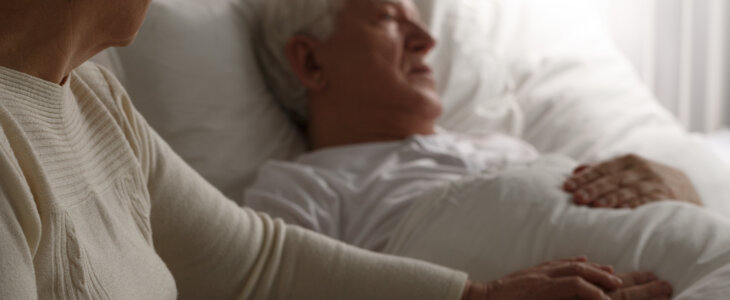Bedsores Should Not Occur in a Nursing Home or Hospital
A patient who has been evaluated for bedsore risk factors and is being regularly and properly cared for should never develop bedsores in a nursing home or hospital. Bedsores, also referred to as pressure ulcers and decubitus ulcers, appear on skin that is under pressure, usually from lying or sitting in one position for too long. They usually start out minor but can develop into open, gaping wounds that are life altering and possibly life threatening. Bedsores can occur as a result of neglect by nurses and care givers.
If your loved one has developed bedsores in a nursing home or hospital, contact Gautreaux Law for a free case review. We are committed to aggressively fighting for our clients who have developed bed sores due to negligent care.
Where Do Bedsores Occur
Bedsores usually appear at bony areas of the skin that are under pressure. Common sites include but are not limited to:
- Heels and Ankles
- The Buttocks or Tailbone
- Elbows
- Shoulder Blades
- Back of the Head
How Do Bedsores Develop
Bed sores develop when part of your skin stays in one place, under pressure, for too long. The pressure causes a decrease in blood flow to the area, which causes the tissue under pressure to begin dying. Bed sores will fall within one of four stages:
Stage 1 – The skin develops a rash. It’s not an open wound, but the skin will be red or a color different than the surrounding area. The area may feel warmer or colder, softer or firmer than the surrounding area, and the patient may or may not complain of pain or itching.
Stage 2 – The skin breaks open, wears away or forms an ulcer, but it will be shallow. It is much like a blister, abrasion or scrape and will be tender and painful.
Stage 3 – The sore deepens, extending into the tissue below the skin, forming a small crater. Fat may show but you will not see muscle, tendon or bone. At this point, a patient may not feel pain because of the tissue damage.
Stage 4 – The sore has gotten deep enough that tendon, bone and/or muscle may show. At this stage there may be damage to tendons and joints. Patients who progress to stage four will sometimes develop osteomyelitis, a bone infection, or sepsis, a blood infection. These are serious, life threatening infections that must be treated immediately.
Unstageable – Sometimes, a person will develop a bed sore that is covered in so much slough (dead tissue that is usually cream or yellow in color) or eschar (dry, black, hard necrotic tissue) that its depth is unknown. In such cases, the slough and/or eschar must be removed to expose the true depth to determine if it is stage 3 or 4.
Bed Sore Treatment and Prevention
The first step to prevent or treat bed sores is to reduce pressure. This can be done by shifting positions in a bed or shifting your weight in a wheelchair. Another option is to use special cushions to help reposition vulnerable areas of skin.
If a sore has already developed, you must keep the wound clean and dressed. If the skin is not broken, clean it with a gentle cleanser and pat the area dry (do not rub). Open sores that are shallow should be cleaned with water or a saline solution and bandaged. The wound must be cleaned each time the dressing is changed.
Treating Stages 3 and 4 bed sores requires removing damaged, dead and infected tissue, treating any subsequent infections with the appropriate medication, and depending on the severity of the wound, it may require surgery.
If you have a loved one who is in the hospital or a nursing home visit them often and ask questions. Under federal law, there are no restricted visiting hours in nursing homes for family member. You can and should go anytime, day or night. Be aware of any sores or bruises and listen to any complaints.
Gautreaux Law is a full-service personal injury law firm in Macon, Georgia that specializes in helping people who have been injured due to someone else’s negligence. We can help you maximize the value of your injury case. It’s free to talk to us about your case, and you don’t pay anything unless we recover money for your injury. We can be reached at 478-238-9758 or by completing our online contact form.

